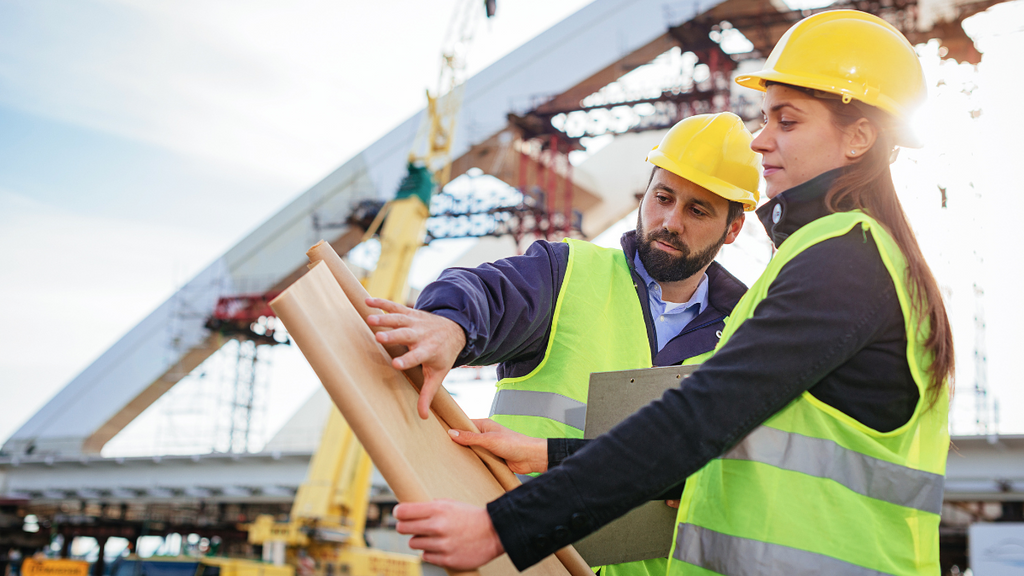The Best Strategy To Use For Geotheta
The Best Strategy To Use For Geotheta
Blog Article
A Biased View of Geotheta
Table of ContentsThe 45-Second Trick For Geotheta5 Easy Facts About Geotheta ShownGeotheta Things To Know Before You Get ThisThe 10-Minute Rule for GeothetaNot known Details About Geotheta

They perform site examinations, collect samples, execute laboratory tests, and assess information to evaluate the suitability of the ground for building jobs - Consulting Engineers. Based on their findings, geotechnical engineers supply referrals for foundation design, slope security, retaining structures, and reduction of geotechnical hazards. They work together with other experts, such as engineers, architectural designers, and building teams, to guarantee that geotechnical factors to consider are integrated right into the general project style and execution
By examining the actions and properties of dirt and rock, they can recognize possible geotechnical dangers such as landslides, soil settlement, or incline instability. Their expertise aids protect against failings or mishaps that could jeopardize lives and residential property. Below are some thorough obligations and duties of a geotechnical designer: Site Investigation: Geotechnical engineers conduct website investigations to gather information on subsurface conditions.
They translate the information to comprehend the homes and actions of the dirt and rock, including their strength, permeability, compaction features, and groundwater problems. Geotechnical Evaluation and Design: Geotechnical engineers analyze the data gathered throughout website examinations to analyze the security and viability of the site for construction projects. They perform geotechnical calculations and modeling to assess elements such as bearing capacity, settlement, incline security, side planet stress, and groundwater flow.
The 3-Minute Rule for Geotheta
Structure Style: Geotechnical engineers play a critical role in creating foundations that can securely support the desired framework. They examine the soil problems and lots needs to identify the ideal structure kind, such as superficial structures (e.g., footings), deep structures (e.g (http://go.bubbl.us/e3adfd/a28b?/Geotheta)., stacks), or specialized methods like soil improvement. They take into consideration variables such as negotiation limitations, birthing ability, and soil-structure communication to establish optimal structure designs
They assess building and construction plans, display site tasks, and carry out field evaluations to verify that the layout referrals are adhered to. If unexpected geotechnical concerns develop, they evaluate the situation and supply recommendations for removal or adjustments to the style. Risk Assessment and Reduction: Geotechnical engineers assess geotechnical threats and dangers connected with the task website, such as landslides, liquefaction, or soil disintegration.

Collaboration and Interaction: Geotechnical engineers function closely with various other professionals entailed in a task, such as designers, architectural engineers, and construction groups. Reliable communication and cooperation check these guys out are necessary to integrate geotechnical factors to consider right into the overall job design and building and construction procedure. Geotechnical engineers provide technical competence, solution queries, and make certain that geotechnical requirements are satisfied.
Not known Facts About Geotheta
Right here are some kinds of geotechnical designers: Structure Designer: Structure designers focus on making and assessing structures for structures. They examine the dirt problems, lots needs, and site attributes to determine the most suitable structure kind and layout, such as shallow foundations, deep foundations, or specialized techniques like pile foundations.
They examine the aspects affecting incline stability, such as soil properties, groundwater conditions, and slope geometry, and establish approaches to avoid incline failings and reduce dangers. Earthquake Designer: Earthquake engineers focus on examining and creating structures to endure seismic forces. They evaluate the seismic danger of a site, evaluate soil liquefaction potential, and develop seismic layout standards to make certain the safety and security and strength of structures during earthquakes.
They execute area screening, gather samples, and analyze the accumulated data to characterize the soil buildings, geologic developments, and groundwater conditions at a website. Geotechnical Instrumentation Engineer: Geotechnical instrumentation engineers concentrate on tracking and determining the behavior of dirt, rock, and structures. They install and maintain instrumentation systems that keep an eye on aspects such as dirt settlement, groundwater degrees, slope activities, and structural variations to evaluate efficiency and provide very early cautions of possible problems.
Fascination About Geotheta
They conduct tests such as triaxial tests, combination examinations, straight shear tests, and leaks in the structure examinations to gather data for geotechnical evaluation and style. Geosynthetics Designer: Geosynthetics engineers concentrate on the design and application of geosynthetic materials, such as geotextiles, geogrids, and geomembranes. They make use of these products to boost soil stability, enhance slopes, supply water drainage services, and control disintegration.
They tend to be investigative individuals, which implies they're intellectual, introspective, and investigative. They are interested, systematic, reasonable, analytical, and logical. Some of them are also social, implying they're kind, generous, cooperative, client, caring, valuable, compassionate, tactful, and pleasant - Consulting Engineer.
In the workplace setting, geotechnical engineers use specialized software devices to do computations, develop layouts, and assess information. They prepare reports, review project requirements, interact with clients and team participants, and coordinate job activities. The workplace setting offers a conducive atmosphere for research study, analysis, and cooperation with various other experts associated with the task.
Some Known Factual Statements About Geotheta
They frequently check out job websites to conduct site examinations, evaluate geotechnical problems, and collect information for analysis. These visits include taking a trip to different places, occasionally in remote or challenging surfaces. Geotechnical engineers may execute soil tasting, conduct tests, and screen building and construction tasks to guarantee that the geotechnical aspects of the task are being executed properly.
Geotechnical engineers likewise work in specialized geotechnical labs. Geotechnical lab designers work thoroughly in these atmospheres, dealing with testing devices, running tools, and taping data.
Report this page